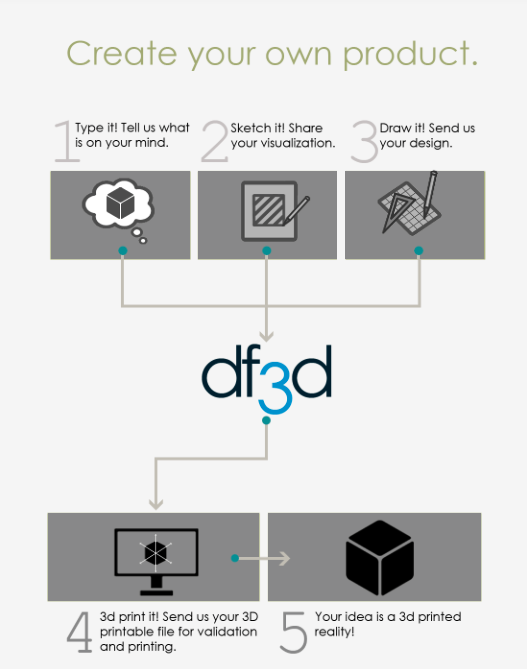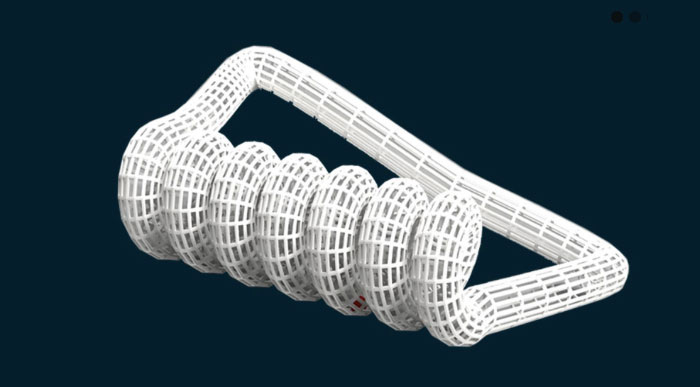The consumer 3D printing scenario is fragmented at best. This is absolutely normal for an industry that is still in its infancy. With 3D printing, it may remain ‘normal’ even further down the line. When it comes to cloud 3D printing the scenario become even more complex because along with the different offers much depends on the specific approach that the company offering the service wants to take.
Df3d is a new company with a double base — in Berlin, Germany; and Bangalore, India. This is also not an uncommon practice in the global 3D printing scenario, with even Stratasys, one of the market leaders, being based both in the USA and Israel. What df3d, which stands for Digital Factory 3D, offers, along with an online 3D model marketplace, is a way for any business to implement 3D printing capabilities.
One of the company’s founders is Amin Torabi from Dimension Alley, Berlin’s first 3D print shop, who used his own experience as well as his software engineering background to develop the service as a way to give others access to 3D printing, whilst also acting as a support for Dimension Alley’s 3D modeling services. Cloudf3d’s approach differentiates itself from other cloud services in that it does not just offer cloud 3D printing as much as it wants to give other business the possibility of offering their customers 3D printing services.
To implement the system, online businesses just need to take and use the Cloudf3d API’s, which will add the 3D printing ecosystem. This means it will integrate a platform offering online customers features such as design e-commerce, design creation and sale, uploading and viewing, scale pricing for each design and online ordering.
The company’s objective is to target homes, as well as traditional retailers and industries, but also professional studios, offices and even hospitals and schools. What this means is that in df3d’s vision every single economic and social structure can have its own online 3D model and 3D printing marketplace. For example a hospital can create and sell surgical models for patients but also for schools and doctor offices. Schools can create and develop 3D models and objects to sell to retailers and homes. Small artisan retailers can widen their business reach by digitizing part of their production. Possible interactions are virtually infinite, as is the business potential for cloud printing and that is exactly why Amin Torabi is not concerned about creating competition for Dimension Alley: the market is wide open now and everyone can create and grow together.




